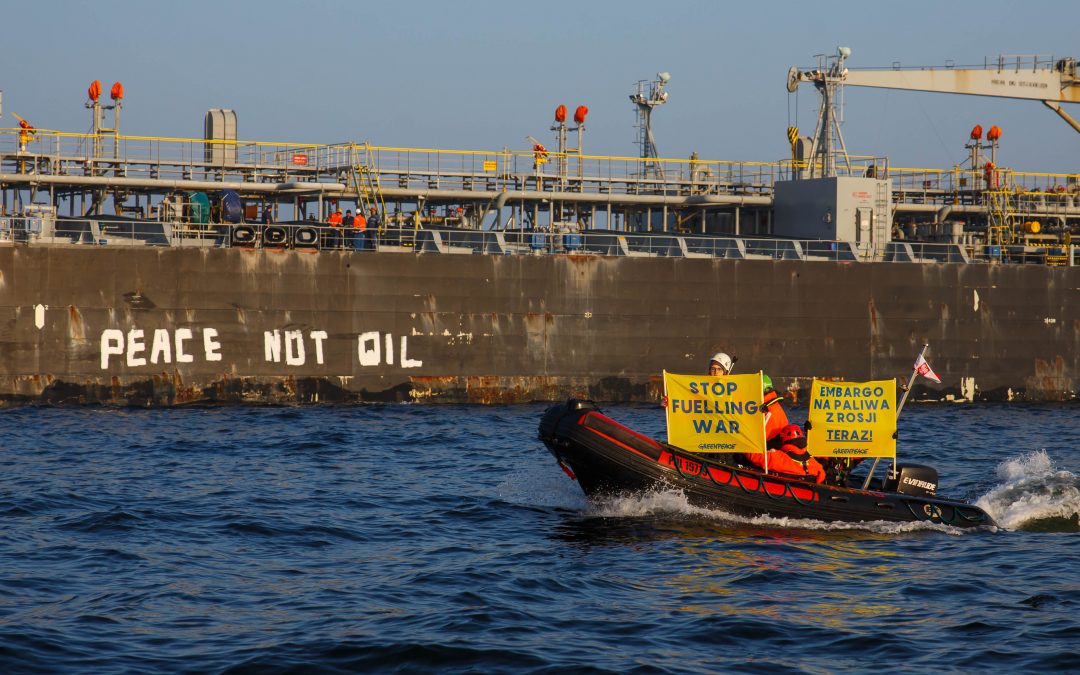This article is published in cooperation with the ideaForum of the Batory Foundation.
By Urszula Schwarzenberg-Czerny
The war in Ukraine will certainly have an impact on the Polish energy transformation, although it is difficult to definitively say what these effects will look like. The developing economic and military scenarios as well as those resulting from climate science reveal the complexities of the situation in which Poland finds itself.
The Russian invasion coincided with the publication of “Climate Change 2022: Impacts, Adaptation and Vulnerability”, an important report by the Intergovernmental Panel on Climate Change (IPCC). The group of scientists at the United Nations body described the way in which we can reduce the level of emissions and keep global warming to a level of 1.5°C (compared to preindustrial times).
It will not be easy to limit the damage caused by the climate catastrophe, which will also affect the generations alive today. But the report, which also includes Polish scientists among its authors, concludes that this task is not impossible if countries take action now.
The Russian military aggression, however, has focused politicians’ attention on achieving independence from energy sources from Russia, as well as supporting Ukraine and strengthening their own countries’ military position.
The IPCC scientists say that the level of emissions is closely connected to a country’s economic position. While 10% of households in the richest countries are responsible for as much as half of greenhouse gas emissions, 50% of the poorest households account for just 15%.
Furthermore, in a situation when huge amounts of money are being pumped into the purchase of arms, they recommend that spending on combating the climate crisis should also increase – sixfold. Yet these funds will not completely mitigate the strong social tensions associated with the essential energy transformation of regions heavily dependent on fossil energy sources.
What is Poland’s position in this? Current events have turned the country’s energy strategy – the Energy Policy of Poland until 2040 (EPP2040) – upside down, bringing the government’s position closer to that adopted by the European Union.
As a result of long-running moves to diversify gas supplies, Poland will probably be able to terminate the Yamal Contract this year and become completely independent from natural gas from Russia. Other countries which did not see such a threat in the East will have a much more difficult task.
Poland also had the most ambitious plans in Europe for expansion of its gas capacity, and they will now certainly change. This is because the war has caused a major increase in gas prices on international markets. In Poland it was meant to replace the reliance on coal and crude oil, without the need for large investments in renewables.
However, the de-Russification of imported fossil energy sources is no longer so clear in Poland. The government has not presented any specific plan for it, and it seems keen to simply replace one supplier of coal and crude oil with another. The recent IPCC report need not change this position – so far, the Polish authorities have not taken such recommendations into account.
The development of climate policy in Poland will also depend on how the war in Ukraine develops. If Ukraine wins, its reconstruction could absorb as much as a billion dollars. The country is already holding discussions on this subject with the European Union. This will require money that would otherwise be earmarked for the development of the entire region, including climate technology investments.
Poland also needs this injection of EU funds in order to implement a just transformation, helping people in mining areas to find their feet in the changing reality (such as money for social support). With a weakened economy, in a country receiving limited subsidies and deliberately delaying the coal phase-out, this process will be too slow.
Should Ukraine lose, on the other hand, Poland will become a frontline country in which politics will be dominated by military issues. Arms expenditure will then certainly replace spending on combating the effects of the climate crisis.
Just how abrupt such a change can be in the political discourse is shown by the example of France. The climate crisis has not been a topic of the presidential campaign at all, although the country has been combating it comprehensively.
Yet this response has not been without errors, as the protests of the “Yellow Vests” movement resulted from increasing fuel prices when the climate tax hit the worst off. It is understandable that Emmanuel Macron is not returning to this major crisis of his presidency. But Marine Le Pen has also failed to capitalise on it. Discussions between the pair have instead concerned the dramatic increase in energy prices and reduced purchasing power.
The high energy costs resulting from the war in Ukraine are also being acutely felt by people in Poland, and will cause increasing dissatisfaction in society. Yet the Polish situation is much more complicated than that in France. Here, energy transformation concerns all users and in fact the entire economy, and so the scale of dissatisfaction could be incomparably larger in the coming uncertain and unpredictable years.
The original Polish version of this article can be found here. Translated by Ben Koschalka.
Main image credit: Greenpeace Polska/Flickr (under CC BY-ND 2.0)





















